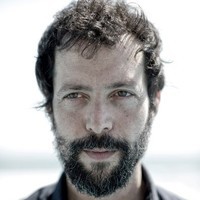These questions originally appeared on Quora. 
Answers by Noaz Deshe, Director, White Shadow (2013 Movie)
A: With as much research as you can do, you can never assume that you know anything about what it is like to live in a country that you've never lived in on a regular basis. You can also never assume another person's experience. But what you can do is be in the situation where you are watching it happen in front of you and refrain from judging it. We tried to give as pure of an experience of going through a certain path as we could, as a sensory experience. The political and cultural information the audience gets comes in a sensory form, not as an explanation.
The audience is in the pure viewpoint of the character. What they don't know, he doesn't know and vice-versa. The audience goes through it with him. And we used the same approach when producing. You can't assume, but what you can do is say, "let's do something together and I'm going to learn from that. And these are things I want to do. I think they're good. What do you think?"
Money would have polluted the creative process in this sense. If we started to solve things with money, we would have distanced ourselves from the subject matter because we'd immediately bring in an object that changes the relationship. But if you bring people into the creative process and they like what they are doing, and you say, "you know what, you're also going to get paid for it," then it turns into something where people accept you and invite you more. A lot of doors open that way and it had to be that way from the beginning. Any other way for me would have been wrong because it would have been too foreign to the place itself.
A: It was difficult finding an experiential approach that takes you away from being able to categorize the film. And by that, I mean it's very important that people don't judge what they see. We tried very hard to make sure, to the best of our ability, that the movie is an experience with question marks on it and not an explanation.
The film is an experience of the imagination and the survival of these characters. The audience can go and ask their own questions, but that's a very narrow area to walk through. We felt that if we let the film fall into categorization, people could place it in a space that would make them feel safe. They'd find the box for it. But when you can't compartmentalize a film, then the audience has no choice but to experience it.
A: When the idea guides you, you serve the idea. As long as the core idea is right, you have to trust that it guides you to the right places even if things happen in a way that you didn't plan. We did a lot of street casting. There was a guy named Hashim Rubanza. He's a wonderful guy that works as a translator for a company that makes movies where we filmed. We immediately had a great connection and we could drive anywhere, walk anywhere, and into any place in the city from the highest to the lowest situations and feel that we could bring people into our creative process.
So we would stand in the morning where people crossed from the ferry from the rural to the business side of the city and just talk to people we found interesting. Every night, there'd be fifty people or a hundred people we picked from the city, and we had them enacting scenes of home invasion and mob justice, having fights, discussions and arguments. Slowly we isolated the people that were very committed and wanted to tell that story.
We also casted very close to the material, where for example, the police played the police. We didn't block the streets and we convinced the whole village to participate and then we paid them. Suddenly, it was their movie because it was their street and they were excited about the process. Instead of bringing in catering, we'd bring all of the mothers to cook and we'd buy the groceries. So it was collaboration with the local community. Because of that, it was their film and it became intimate to shoot it. They brought us into their lives and we helped them make a film about something they wanted to tell.
A: Yes, everybody in the film is quite close to what they are playing. The exorcist is a real exorcist. The person that is bad in the movie, his job in his real life is to get confessions out of people for the police. He's a police officer that people are afraid of. But he also felt that it was very important to tell that story. The lead character had to escape a village in order to go to the big city to be safer.
He's in a Muslim boarding school now that keeps him safer. His mother is also suffering from Albinism and needs help -- she has skin cancer. Everybody is playing something that is quite close so they carry themselves physically in a way that has credibility immediately. You don't have to explain to them what they are doing. Their physical projection of what they are doing is immediately strong and you believe it because they are not acting. But they are performing and saying lines we gave them within the conduct of their own life.
